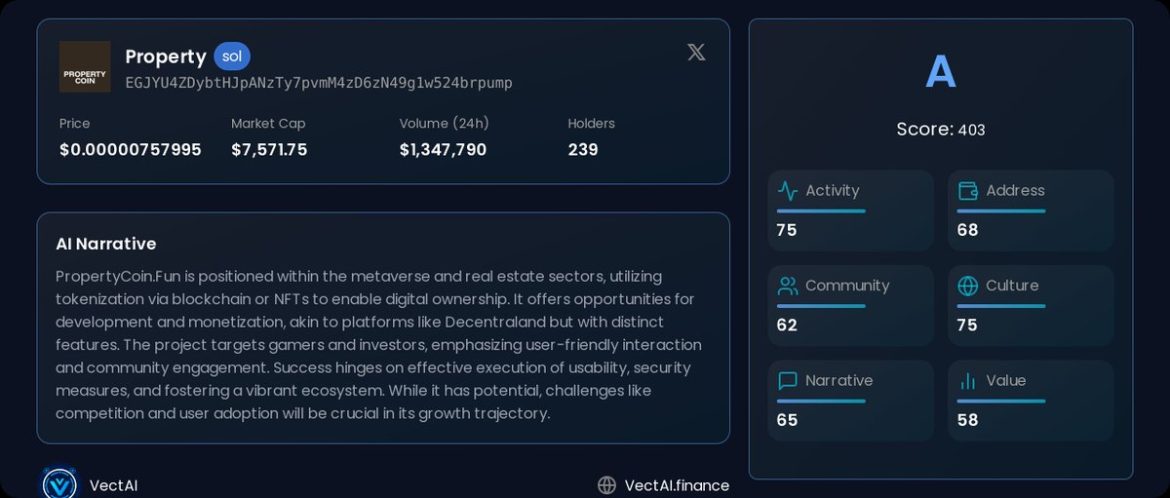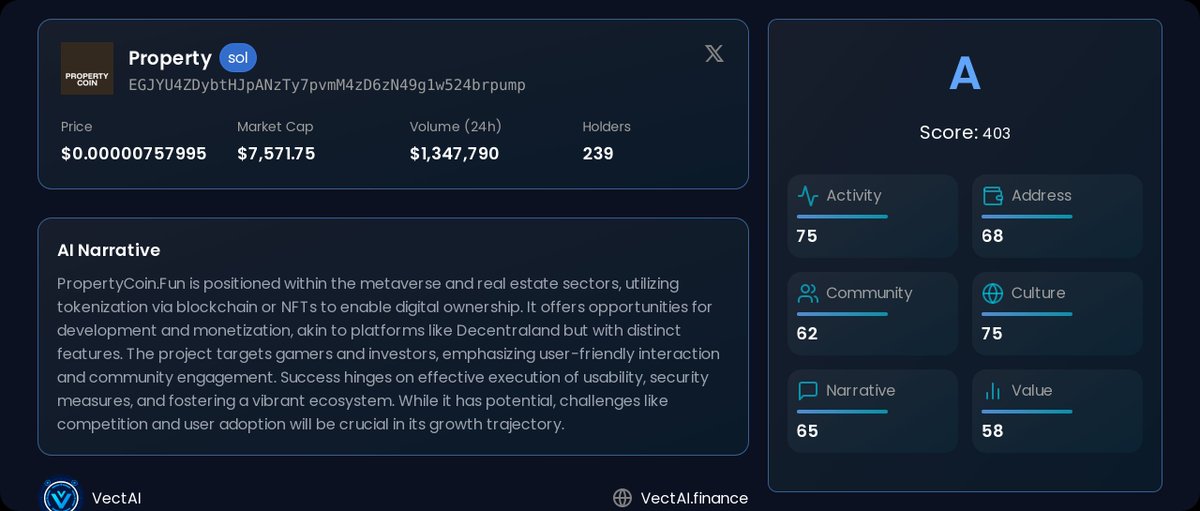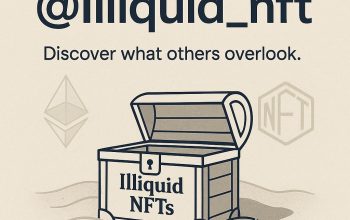Decoding the Future: Tokenized Real Estate, AI, and Blockchain
The Dawn of a New Investment Paradigm
Imagine standing in the heart of Tokyo, sipping coffee in a café that you partially own. Or perhaps you’re enjoying a glass of wine from a vineyard in Napa Valley, knowing that you’re a fractional owner. This isn’t a distant dream—it’s the reality unfolding before us, thanks to the convergence of tokenized real estate, artificial intelligence (AI), and blockchain technology. These innovations are dismantling traditional barriers, making property investment more accessible, transparent, and efficient than ever before.
Tokenized Real Estate: Breaking Down Barriers
Accessibility and Affordability
Traditional real estate investment has long been the domain of the wealthy, with high entry costs and complex legal processes. Tokenization is changing this by representing real estate assets as digital tokens on a blockchain. These tokens signify fractional ownership, allowing individuals to invest smaller amounts and diversify their portfolios effortlessly [4, 6].
For example, instead of needing hundreds of thousands of dollars to buy a luxury apartment in Paris, you could purchase a fraction of it for a much smaller amount. This democratization of investment opens up opportunities for a broader range of investors, fostering a more inclusive market.
Increased Liquidity
One of the most significant drawbacks of traditional real estate is its illiquidity. Selling a property can take months, if not years. Tokenized real estate offers a solution by enabling tokens to be traded on exchanges, providing faster and more flexible transactions [6].
Imagine being able to sell your share of a property within minutes, rather than waiting for a buyer to come along. This increased liquidity makes real estate investment more attractive and aligns it more closely with other asset classes.
Transparency and Security
Blockchain technology provides a transparent and secure ledger for tracking ownership and transactions. This reduces the risk of fraud and increases trust in the system. Every transaction is recorded on the blockchain, creating an immutable record that can be verified by anyone [6].
This transparency is particularly valuable in real estate, where disputes over ownership and transactions can be common. With blockchain, all parties can have confidence in the accuracy and integrity of the records.
AI: The Intelligent Real Estate Analyst
AI is revolutionizing the real estate industry, from property valuation to market analysis. When combined with tokenized real estate, AI can provide investors with data-driven insights to make informed decisions.
Predictive Analytics
AI algorithms can analyze vast amounts of data, including market trends, economic indicators, and property data, to predict future price movements and identify promising investment opportunities. Platforms like Token Metrics utilize AI to provide crypto trading and research data, which can be adapted to analyze tokenized real estate [3].
For instance, AI can help investors identify undervalued properties or predict market trends, enabling them to make strategic investment decisions. This level of analysis was previously only available to professional investors with access to sophisticated tools.
Automated Valuation
AI can automate property valuation, providing accurate and up-to-date assessments based on various factors. This reduces the need for costly appraisals and streamlines the investment process.
Imagine being able to get an instant valuation of a property, based on real-time market data and AI analysis. This not only saves time and money but also ensures that investors have the most accurate information available.
Risk Management
AI can assess the risk associated with different tokenized real estate investments, helping investors make informed decisions and manage their portfolios effectively.
For example, AI can analyze factors such as market volatility, economic conditions, and property-specific risks to provide a comprehensive risk assessment. This enables investors to make more informed decisions and mitigate potential losses.
Blockchain: The Foundation of Trust and Efficiency
Blockchain technology serves as the bedrock for tokenized real estate, providing a secure, transparent, and efficient platform for managing ownership and transactions.
Immutable Record
Blockchain creates an immutable record of all transactions, ensuring that ownership is easily verifiable and cannot be tampered with. This reduces the risk of fraud and disputes.
For instance, if a dispute arises over the ownership of a property, the blockchain can provide a clear and indisputable record of the transaction history. This level of transparency is invaluable in resolving disputes and maintaining trust in the system.
Smart Contracts
Smart contracts automate many of the processes involved in real estate transactions, such as rent collection, distribution of profits, and transfer of ownership. This streamlines operations and reduces administrative costs.
Imagine a scenario where rent is automatically collected and distributed to token holders, without the need for intermediaries. This not only reduces costs but also ensures that all parties receive their share in a timely and transparent manner.
Decentralization
Blockchain’s decentralized nature eliminates the need for intermediaries, such as banks and title companies, reducing transaction costs and increasing efficiency [6].
For example, by eliminating the need for intermediaries, blockchain can significantly reduce the time and cost associated with real estate transactions. This makes the process more efficient and accessible for all parties involved.
Challenges and Opportunities
While the convergence of tokenized real estate, AI, and blockchain holds immense promise, several challenges need to be addressed for widespread adoption.
Regulatory Uncertainty
The regulatory landscape for tokenized real estate is still evolving, and there is a need for clear and consistent regulations to provide legal certainty and protect investors.
For instance, different jurisdictions have different regulations regarding tokenized assets, which can create uncertainty for investors. Clear and consistent regulations are essential to foster trust and encourage investment.
Market Volatility
The value of tokenized real estate can be volatile, influenced by factors such as market sentiment and regulatory changes. Investors need to be aware of these risks and invest accordingly.
For example, the value of tokenized real estate can fluctuate based on market conditions, just like any other investment. Investors need to be aware of these risks and diversify their portfolios to mitigate potential losses.
Technological Adoption
Widespread adoption of tokenized real estate requires greater awareness and understanding of the underlying technology. Education and outreach are essential to encourage participation.
For instance, many potential investors may be unfamiliar with blockchain technology and tokenized assets. Education and outreach are crucial to demystify these technologies and encourage broader participation.
The ROI Calculator: A Glimpse into the Future
Tools like the Tokenized Real Estate ROI Calculator exemplify the practical applications of these technologies. Such calculators allow investors to analyze potential returns, rental yields, and overall profitability of blockchain-based real estate investments [1]. These tools empower individuals to make data-driven decisions, further democratizing the real estate investment landscape.
For example, an investor can use an ROI calculator to analyze the potential returns of a tokenized real estate investment, taking into account factors such as rental income, property appreciation, and market conditions. This level of analysis enables investors to make more informed decisions and maximize their returns.
A New Era of Property Ownership
The fusion of tokenized real estate, AI, and blockchain is ushering in a new era of property ownership. By lowering barriers to entry, increasing liquidity, and enhancing transparency, these technologies are democratizing real estate investment and empowering individuals to participate in a market that was once reserved for the wealthy elite. As these technologies continue to evolve, we can expect to see even greater innovation and disruption in the real estate industry. The future of property ownership is here, and it’s tokenized, intelligent, and decentralized.
Conclusion: Embracing the Future
The convergence of tokenized real estate, AI, and blockchain is not just a technological advancement—it’s a paradigm shift. It’s a move towards a more inclusive, transparent, and efficient real estate market. While challenges remain, the opportunities are vast and the potential is immense. As we stand on the brink of this new era, it’s time to embrace the future and redefine the way we invest in and own property. The future is here, and it’s tokenized, intelligent, and decentralized.
Sources:





